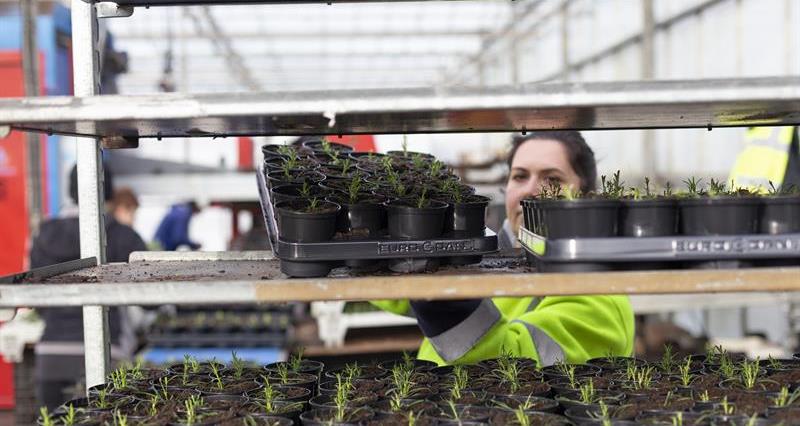Ľ ľ“Ľ™»ňhas made significant lobbying efforts, asking Defra to find alternative solutions for growers facing unfair fees for plant health border checks, which favour imports over domestic production.
Defra consults on plant health fees
04 February 2022

Ľ ľ“Ľ™»ňasked Defra to find alternative solutions for growers facing unfair fees for plant health border checks.
4 February 2022
Consultation closes
This consultation is now closed.
16 December 2021
Consultation opens
Defra has launched a , which we welcome. It proposes a flat rate plant health border check fee, making it fairer for growers importing plant material for growing on.
Concerns raised
Plants from the EU, intended for final users, are currently subject to physical and identity checks at a frequency of 5-10%, compared to 100% for plants not intended for final users. Concerns have been raised by us that this may result in EU finished plants benefiting from a cost advantage over plants imported for finishing in Great Britain.
For instance, a plant finished in the EU would be subject to 10% checks (and a 10% fee, c. £20), whilst imported plants intended for finishing in Great Britain would be subject to 100% checks (and a 100% fee, c. £200).
Finding a fairer solution
We are working hard with Defra to find a fairer solution. The consultation is seeking views on whether to switch to a flat rate fee (where all imported plants for planting will be subject to the same fee regardless of intended use), for some or all categories of plants for planting, or to continue to use the current fees. 
Opportunity to gather data
This is a short-term measure proposed by Defra, which it would aim to have in place by July 2022, and would run until it has the opportunity to gather data for a full review of fees methodology, ideas and proposals.
Your views are needed
Growers affected by these fees are being encouraged to submit their views to the consultation.
What we’d like members to do:
- Review the proposed flat rate fee structure and raise your views with the NFU via [email protected] to help inform the NFU submission by 28 January 2022.
- Submit your own individual response to [email protected] by 4 February 2022.
- Also review the plant health border check frequency consultation, which is open until 28 January 2022.
Guidance on responding
State your support
Clearly state if you are supportive of the flat rate fee proposal. We would encourage members to strongly support the introduction of a flat rate fee structure. Defra have been clear they need majority support to implement the proposal.
Your business
Give a brief summary of your business, including:
- Business turnover.
- The market in which you operate.
- What proportion of your stock is propagated in-house/supplied by UK propagators and/or imported from the EU.
- It would also be useful to state how much it costs your business to import plants under the current fee structure.
The impact on your business
Outline the impact the current fee structure has on the competitiveness of your business, such as:
- How the fee structure encourages importing of finished product over that grown within the UK and the risk this poses to national plant health and biosecurity.
- The impact of such uncompetitive trading to your business. For example, leading UK growers to either increase the cost of the finished product or reduce your business profit margin.
The benefits to your business
Outline the benefits of a flat rate fee structure to your business. This could include:
- How it might help to address competitiveness of your business.
- Provide a provision for a more dynamic approach for plant health inspections driven by the risk of prevailing pest pressures. For example, although at present ‚Äėplants for planting‚Äô, not intended for the final user, are subject to 100% inspections and those are intended for the final user just 10%, this might not always be appropriate. Future pests and their associated risk assessments might demand a reallocation of manpower resource. A flat rate immediately facilitates this flexibility without causing UK growers to indirectly subsidise increased inspection of imported plants going straight to the final user.
- It would enable a more flexible and legally compliant approach to the future usage of imported product. There are scenarios where product may be imported intended for immediate retail or landscape use but due to cancelled orders may be held and even repotted/replanted on a nursery ‚Äď technically this should not be allowable under the current inspection regime.
This page was first published on 21 December 2021. It was updated on 04 February 2022.
Ask us a question about this page
Once you have submitted your query someone from NFU CallFirst will contact you. If needed, your query will then be passed to the appropriate NFU policy team.